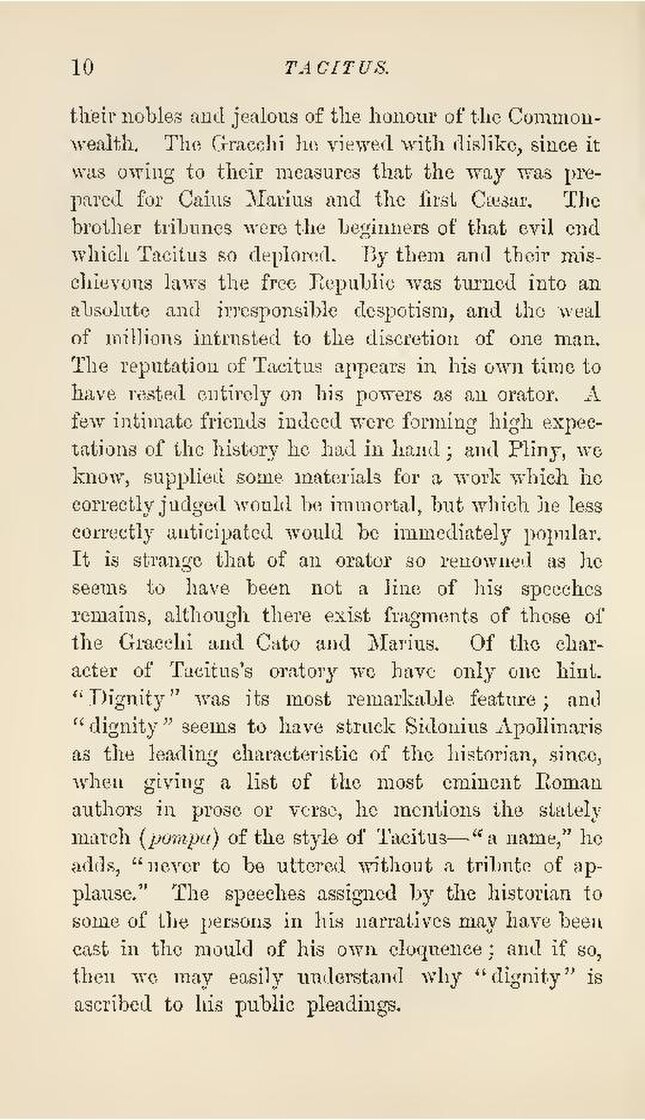their nobles and jealous of the honour of the Commonwealth. The Gracchi he viewed with dislike, since it was owing to their measures that the way was prepared for Caius Marius and the first Cæsar. The brother tribunes were the beginners of that evil end which Tacitus so deplored. By them and their mischievous laws the free Republic was turned into an absolute and irresponsible despotism, and the weal of millions intrusted to the discretion of one man. The reputation of Tacitus appears in his own time to have rested entirely on his powers as an orator. A few intimate friends indeed were forming high expectations of the history he had in hand; and Pliny, we know, supplied some materials for a work which he correctly judged would be immortal, but which he less correctly anticipated would be immediately popular. It is strange that of an orator so renowned as he seems to have been not a line of his speeches remains, although there exist fragments of these of the Gracchi and Cato and Marius. Of the character of Tacitus's oratory we have only one hint. "Dignity" was its most remarkable feature; and "dignity" seems to have struck Sidonius Apollinaris as the leading characteristic of the historian, since, when giving a list of the most eminent Roman authors in prose or verse, he mentions the stately match (pompa) of the style of Tacitus—"a name," he adds, "never to be uttered without a tribute of applause." The speeches assigned by the historian to some of the persons in his narratives may have been cast in the mould of his own eloquence; and if so, then we may easily understand why "dignity" is ascribed to his public pleadings.
Page:Tacitus; (IA tacituswilliam00donnrich).pdf/22
This page has been validated.
10
TACITUS.
